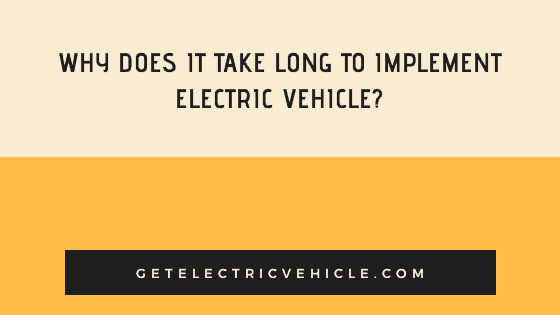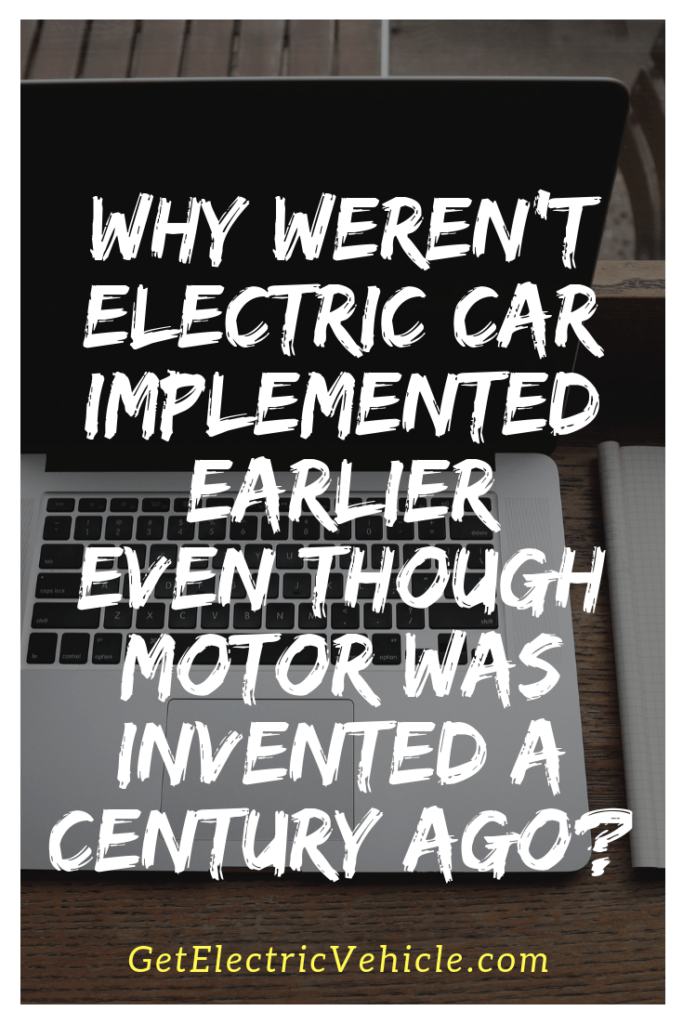
The electric motor propels an electric vehicle consuming energy stored in a battery. Electric motors were invented in the 19th century and they were the prototypes that helped to construct fully functional electric motors.
The first commutator DC electric motor capable of turning machinery was invented by British scientist William Sturgeon in 1832. Following Sturgeon’s work, a commutator type direct-current electric motor was built by American inventor Thomas Davenport, which he patented in 1837. (US Patent 132)
Alessandro Volta invented the first battery in 1800 which came to be known as the voltaic pile.
The main components of an electric vehicle are electric motor and battery. Even though they were invented long ago, commercial electric vehicles were not manufactured for a long time.
First electric vehicle was manufactured in 1832 by Robert Anderson and they became practical after 1870s.
1886 is considered as the birth year of modern gasoline car when Karl Benz patented Benz-patent Motorwagon. American manufacturer Ford Motor Company widely developed gasoline cars after 1908.
Why Electric Vehicle took long to be manufactured?
Even though electric motors were invented long ago, electric batteries were not that efficient in terms of energy storage.
The low range of electric vehicles due to the constraint of energy storage confined the use of EVs to cities. At the same time, energy extraction and combustion engines were being highly developed and advanced.
Gasoline reserves were found all over the world. The high energy density of gasoline makes them suitable for cars.
So what happened to electric vehicles? Short-range, high maintenance cost, etc pulled EV back.
Electric trains which do not use batteries to propel got popularized much faster than electric cars. Range doesn’t matter for locomotives since they receive electric energy from overhead lines.
The future of electric vehicles is prominent since the gas reserve is depleting day by day.
Almost all vehicle manufacturers already declared their plans to manufacture electric vehicles.
The main reasons why electric cars were not implemented earlier are listed below.
- Lower energy and power density of the electric battery
- Advancements of the internal combustion engine
- Availability of fossil fuels
- Technological advancements of the IC engine
- Slow charging of the electric battery (How long does it take to charge an EV battery?)
Do electric cars have a prominent future?
Where would be an electric vehicle positioned in the automotive market in the future? Is the future of electric vehicles promising? These are a few questions that pop up when we think of electric vehicles.
Fossil fuel reserve reduces day by day due to large consumption, which is far grater than the rate at which they are generated. Gasoline is the major power source of a conventional vehicle.
As a result of the depletion of the world’s largest nonrenewable energy source that propels a vehicle, focus changes to electric vehicle that would use electricity as the source of energy.
A shift of use from conventional vehicles to electric vehicles will happen in a few years as the world faces issues of carbon emission and environmental pollution. Electric vehicles attract customers with their proven advantages such as cleanliness, low running, and maintenance cost.
Battery electric vehicles are not that popular as hybrid electric vehicles. Manufacturers haven’t started mass production of battery electric vehicles yet. (Tesla motors is an exception).
Micro hybrids such as Volkswagen Passat are there in the market for long…[Read more — factors affecting future of EV etc.]

Conclusion
Internal combustion engine vehicles are common and widely accepted due to the advantages that they have, compared to electric vehicles. Abundant availability of fossil fuels, the energy density of fuel, longer rage, etc. are the main reasons why the internal combustion engine was popular.
Electric vehicle battery could not provide enough range for the vehicle as that provided by fossil fuels.
Due to the disadvantages of electric vehicle, internal combustion engine vehicles took an upper hand.
Don’t forget to share the post with your friends and follow us on Facebook, LinkedIn, Twitter, Instagram, and YouTube
Key points
- EVs were invented long ago
- Due to the disadvantages of EVs, IC engine vehicles capture the automotive market
You will also like
- NOSMOKE Electric Car – The complete customizable EV from France!
- Three Wheel Electric Scooters: Check out the three
- Electric car icons and electric car logo – download
- Charging stations outnumbered gas stations in Britain
- The best car interior accessories: Why would you wait to get one?
- Does it really make sense to compare charging stations and gas stations?
- Electric buses decrement oil demand considerably